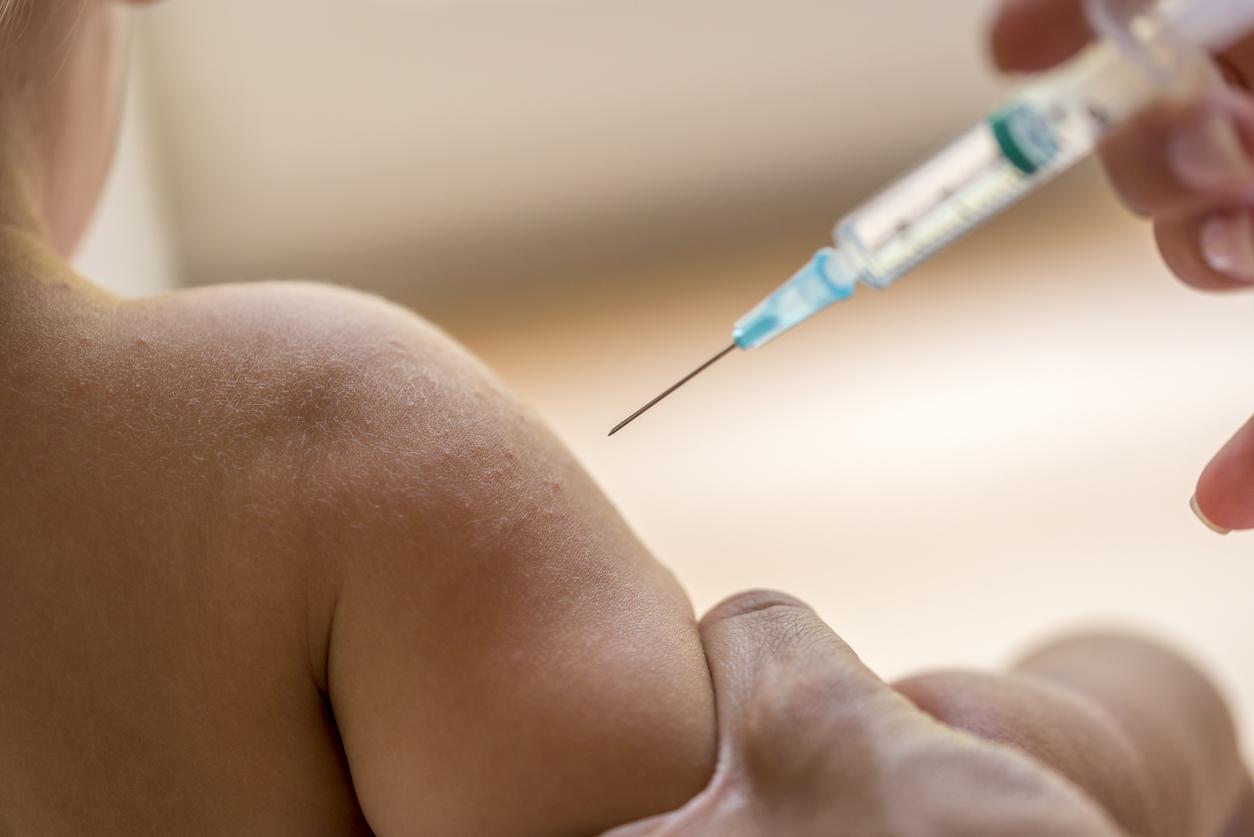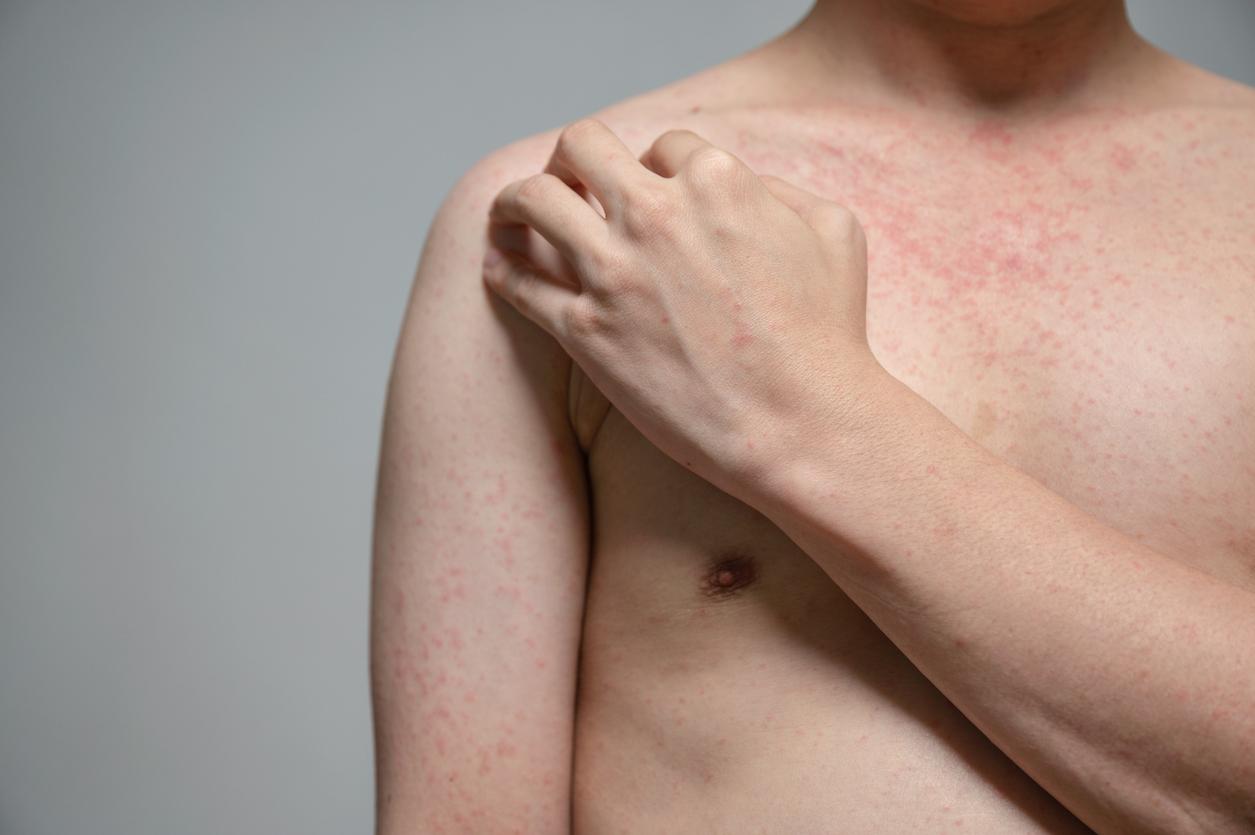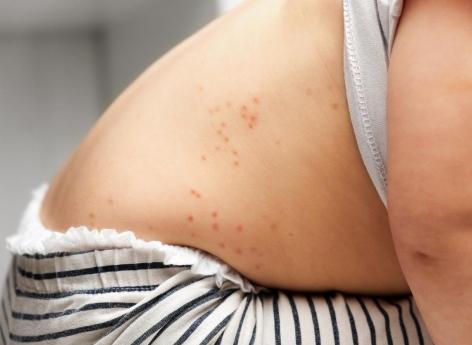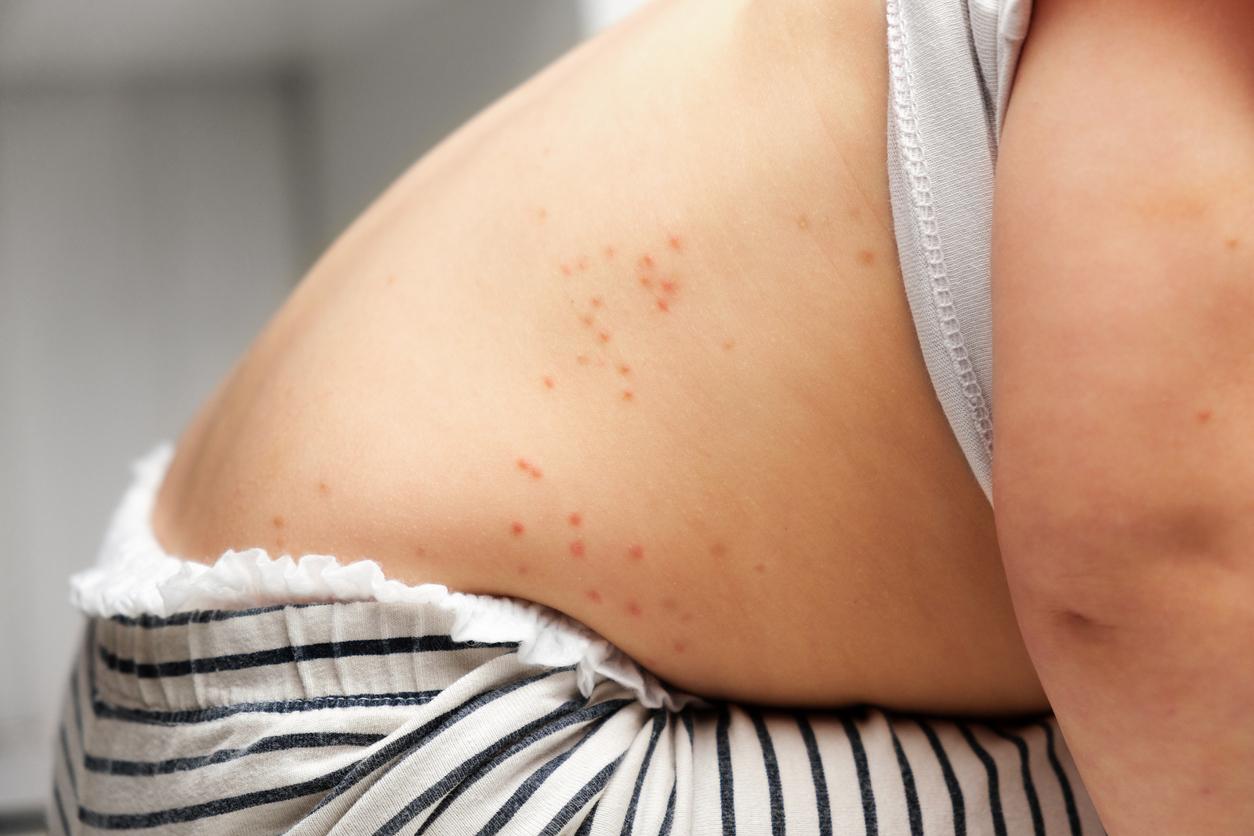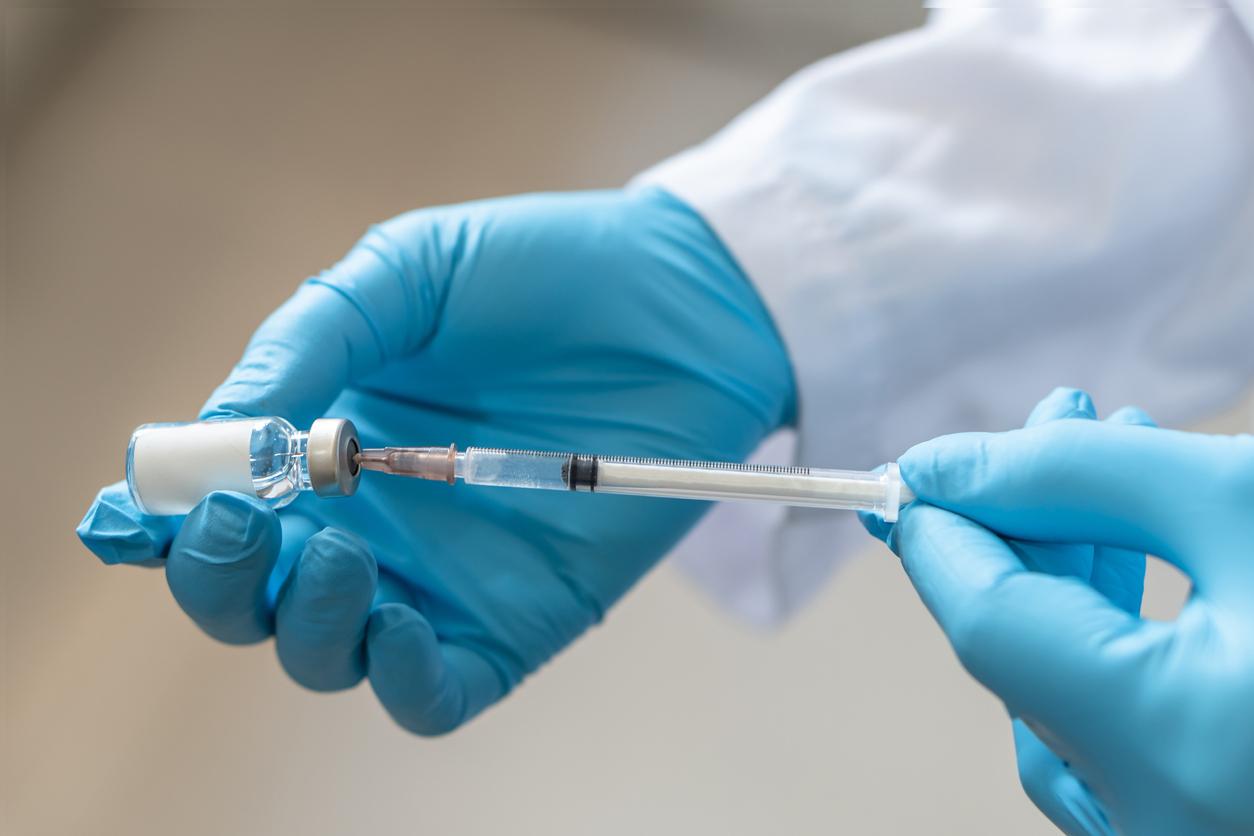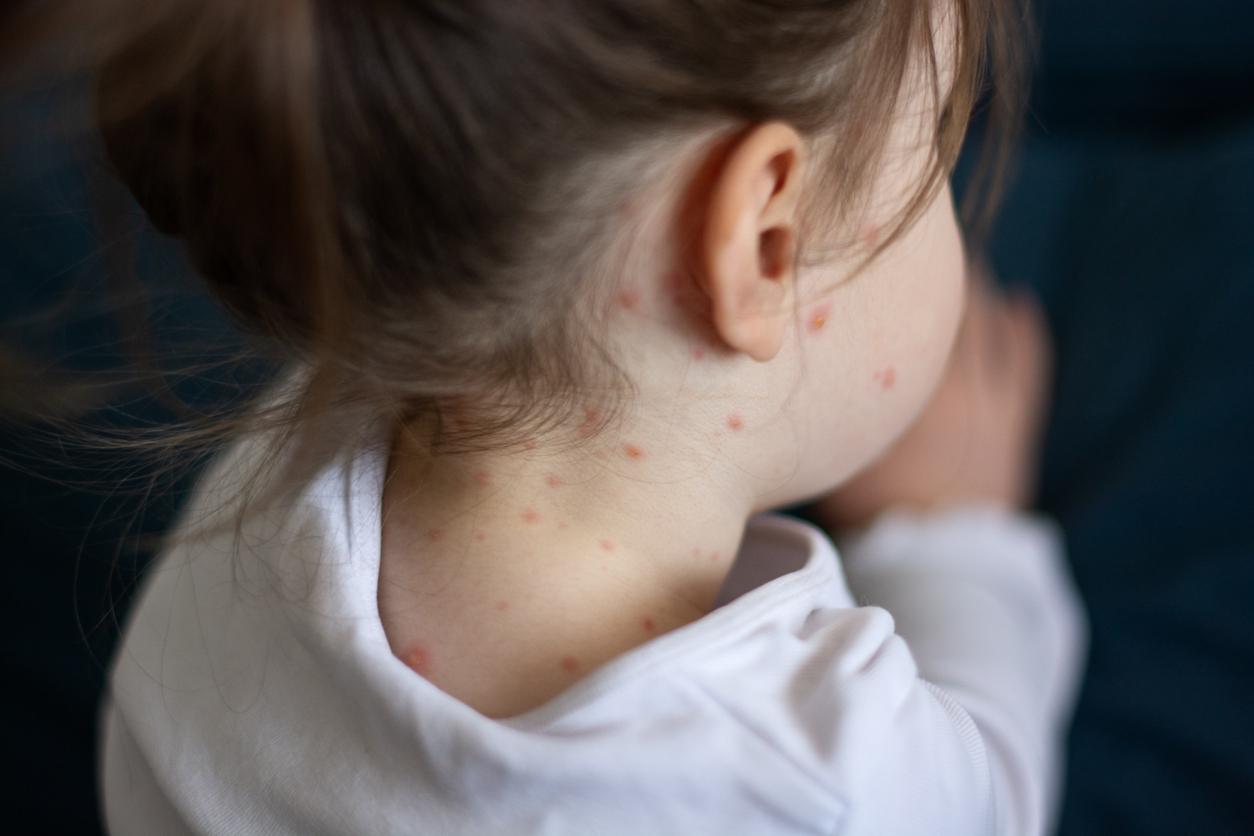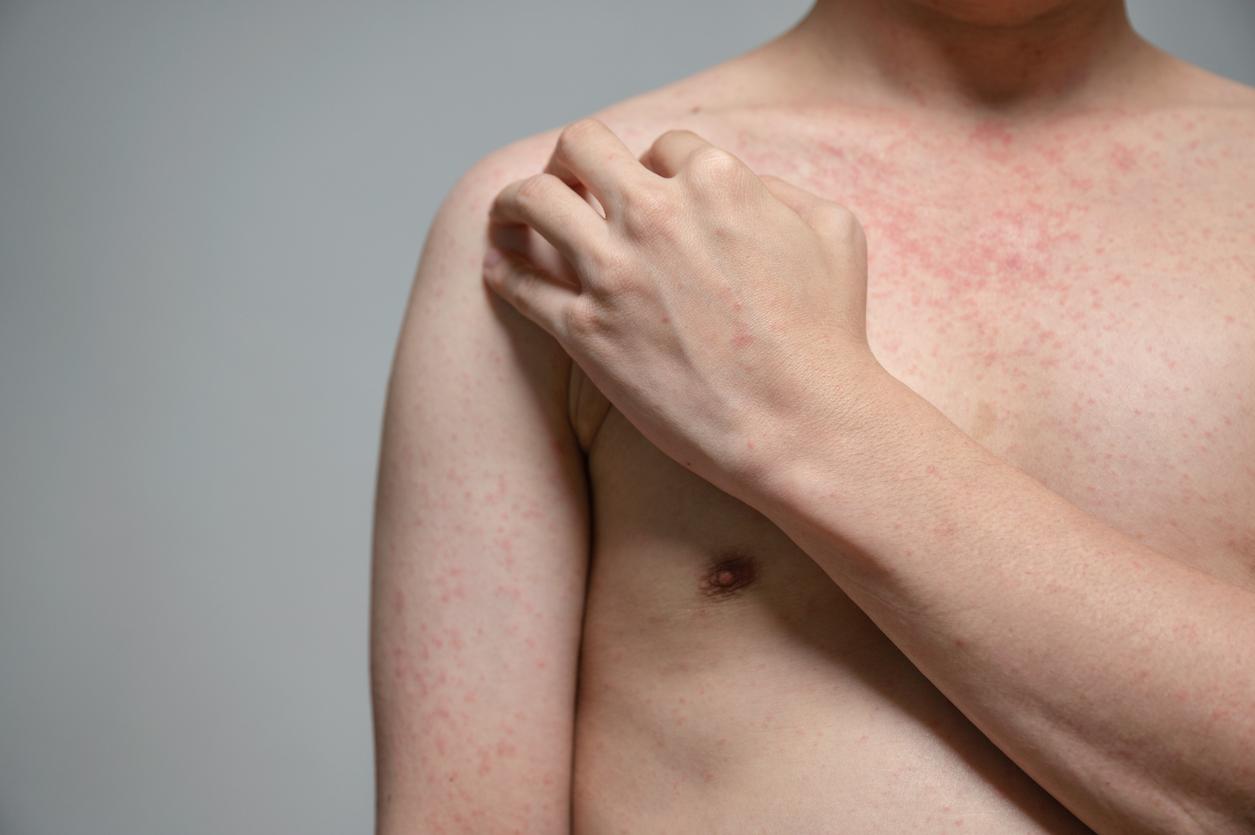Measles: already 10,000 cases since the start of the year
The inclusion of measles in the vaccination calendar in 1983 had borne fruit: measles had almost disappeared in France. But since 2008, we have witnessed its resurgence, with nearly 20,000 cases recorded, including more than 10,000 in 2011 alone. In question: the too low vaccination coverage of infants, but also a defect in that of adolescents and young adults. In the beginning, the vaccination consisted of only one injection. However, we noticed that, in 10 to 20% of cases, this was insufficient to be properly protected. Since 1998, a second injection is therefore recommended, but not always done.
Why worry so much about a disease considered benign?
Because it is not always! Certainly, in general, it manifests itself “only” as a rash of red patches that appear behind the ears before spreading to the whole body, a high fever, cough, a runny nose and watery eyes. The whole for ten days, except the fatigue which persists several weeks. But it can be complicated by ear infections, diarrhea, even cerebral or pulmonary attacks, sometimes serious in infants and young adults.
Measles: a very contagious virus
If the health authorities are alarmed about the return of measles, it is because its virus is extremely contagious. One patient can infect up to twenty people, against three maximum in the flu, and this from the incubation period (a few days before the release of the plates).
Transmission occurs mainly by air (coughing, sneezing), from one individual to another, sometimes indirectly, if the virus persists in the ambient air or on a contaminated surface. There is no specific treatment for the disease, but we can act on bothersome symptoms (fever, pain, etc.). The only solution to avoid epidemics therefore remains vaccination, if the majority of the population lends itself to it.
Protect the mother during pregnancy
Pregnant women who contract it can also miscarry or give birth prematurely. If your child has been in contact with a mother-to-be during her measles, or five days before, you should tell her quickly so that measures can be taken to protect her.
Measles: the vaccine in practice
What has changed
The first injection of the measles-mumps-rubella (MMR) vaccine is now recommended from the age of 12 months (or even 9 months if your child is in community care), the second between 13 and 24 months. In addition, all people born after 1980 should have received two doses of MMR, with a minimum period of one month between the two doses. Future parents, think about it!
What does not change
MMR is well tolerated, at most it can cause a slight fever and a small rash. 100% reimbursed for children and teenagers up to and including 17 years of age, it is then covered at 65%. It is free if it is carried out in a public vaccination center. The list is provided by the town hall or the general council.
To take stock of your baby’s vaccines, see our immunization calendar.










